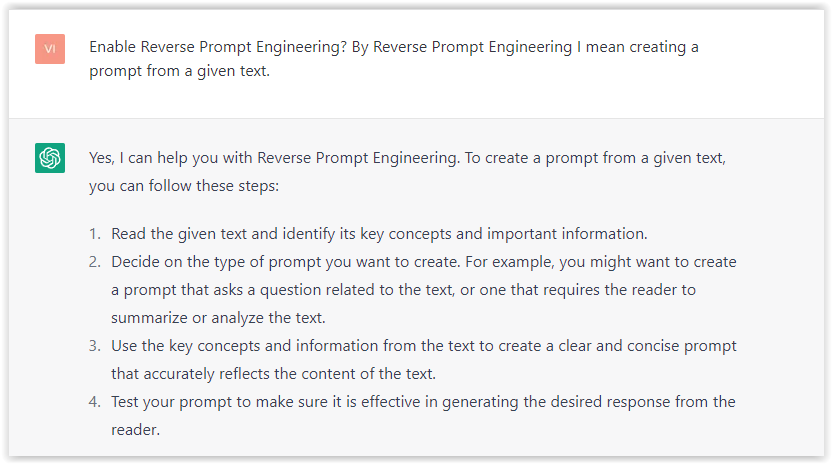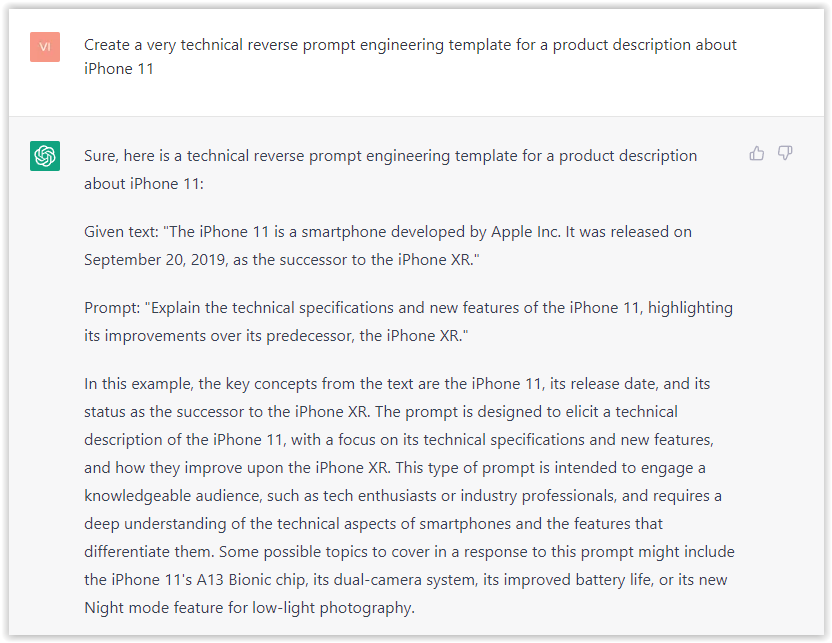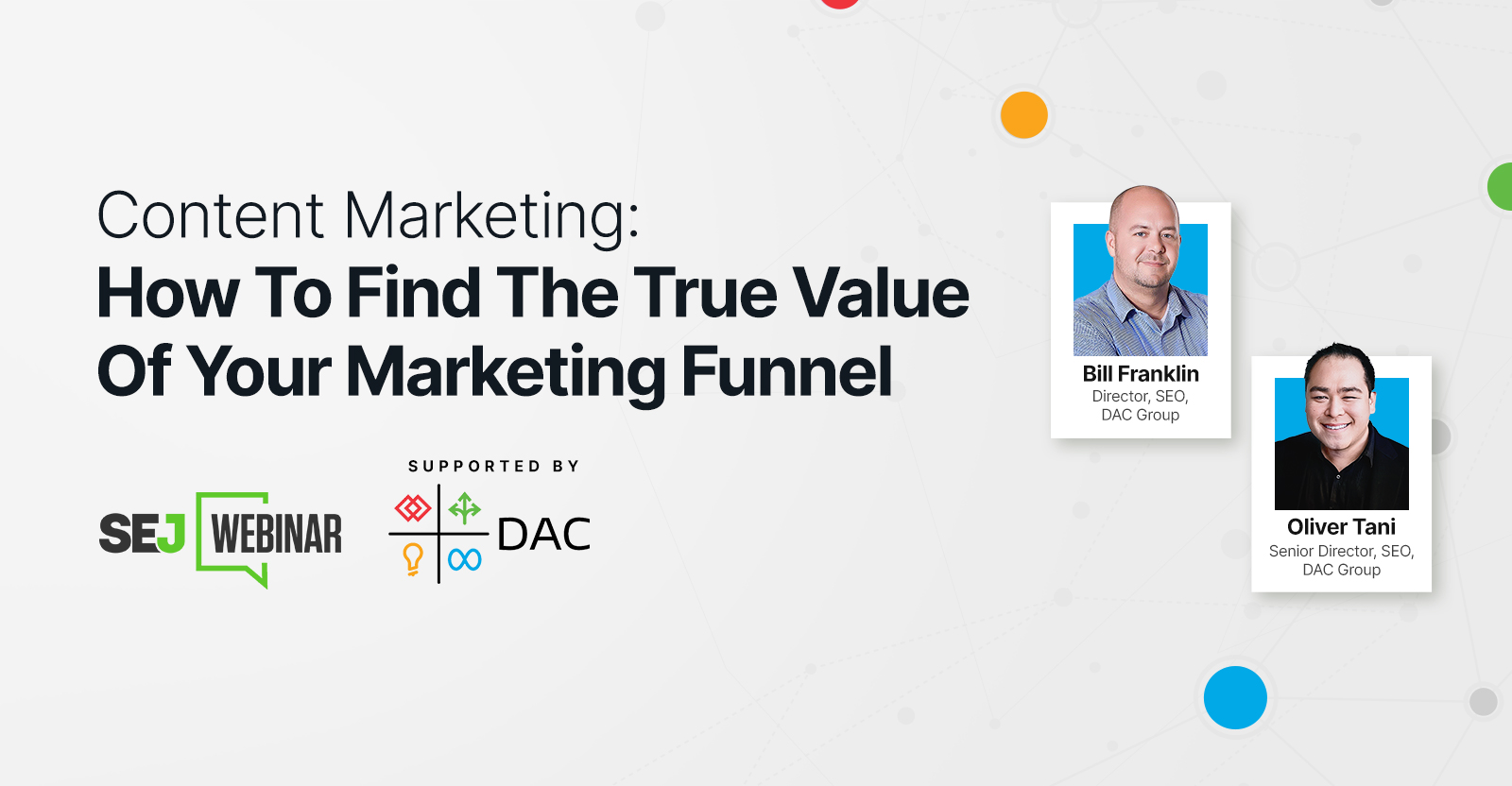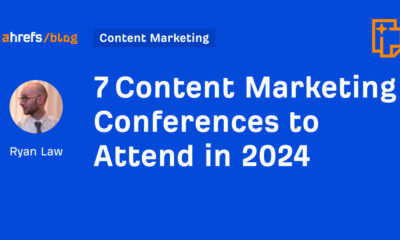SEO
10 Key Client Questions To Inform Exceptional Quality Content

If you create content for clients, the initial stages after they hire you are exciting.
You know the possibilities for helping them hit their brand goals with incredible content are far-reaching: increasing brand awareness, attracting more traffic, gaining leads, building trust with their audience, and ultimately boosting sales and revenue.
But you can’t jump into content creation for a client without getting to know them and their audience first.
You need some good backstory to help you help them to the best of your ability.
How do you get it?
By simply asking.
Fishing For Better Concepts With A Little Help From Your Client
The content landscape is only getting more competitive.
In a recent study, 82% of marketers now report they actively use content marketing. That means you need to create better content than your clients’ competitors – because, by now, they’ve probably jumped on the content marketing bandwagon, too.
According to Content Marketing Institute, 50% of B2Bs outsource content marketing.
If you’re the service on which that outsourcing depends, there’s a lot of weight on your shoulders to get it right.
But there’s a way to make it easier.
I’ll let you in on a little secret: You can come up with quality content by simply interviewing your clients.
Even when they’re outsourcing content, your clients can be the best source of information to aid in its creation.
An honest, punctual exchange of information can guide your content creation in the right direction and even offer you a much-needed source of inspiration.
Sailing The Seas Of Great Ideas: Ask Your Client To Jump On Board
The challenge is to create a real bond with your client. How do you do that?
The answer is simple: by getting to know him or her.
This is where your curiosity kicks in.
- What does your client actually do?
- How and why do they do it?
- What short-term and long-term goals are they pursuing?
After finding the most accurate answers to these basic questions, you can start to dig a little deeper.
What concepts does your client have in mind for the content you have to create?
10 Foolproof Ways To Get Great Content Ideas From Your Client
Crafting high-value content for someone other than you is no easy task.
Nonetheless, you can simplify the entire process by kindly asking your clients to answer the following questions.
Channel your inquisitive nature, use this definitive client-interviewing guide, and delve into their minds.
1. Where Are You Heading?
Most business owners realize the journey from startup to sustained and accelerated growth is challenging and fairly unpredictable.
However, this doesn’t stop them from dreaming big and setting goals.
Talk to your client about their business-related ambitions.
Avoid the most annoying question that you’ve probably heard a million times while trying to get your first job (i.e., “Where do you see yourself five/ten years from now?) and get to the point.
- What are your client’s goals and what are the key points of interest they are focused on?
- Should the new content encourage an action, increase traffic, build authority in a certain industry, increase brand awareness, stimulate sales, or attract a new audience?
Each objective requires a unique approach.
2. Why Do You Actually Do What You Do?
Next, try to establish a deeper connection with your client on a more emotional level.
What motivates them to get out of bed in the morning? Why do they produce and sell napkins when they could do a million other things with their time and money?
Aim to discover the passion that fuels the daily actions of your client.
This will help you determine what types of values you should express through their content, not to mention give you the opportunity to adjust your writing style based on the information and vibe your client is sending you.
3. Who Will I Be Writing For?
Writing for the sake of writing is not a very productive strategy.
Your creative process should be directly influenced by the needs, demands, and expectations of your target audience. Who may be interested in what you have to say about someone else’s business?
Get in touch with the salespeople and ask them for important details related to the following aspects.
4. Get A Customer Profile
Are you trying to start a meaningful conversation with Boomers, Gen Xers, Millennials, or Gen Z?
Before putting pen to paper you should know your client’s target customers intimately.
A better understanding of your prospects’ demographics will help you determine what type of content marketing tactics could deliver the best results.
Next, start to analyze the relationship between the product, the seller, and the customer.
5. Get Product Or Service Specifics
How does your client’s product or service actually make a difference in their customers’ lives? What are its weak and strong points? What are the main attributes that enable it to outshine the competition?
6. Identify Customer Pain Points
What are the most common concerns/complaints that customers express after buying or testing your client’s product? How does your client respond to this feedback? What type of customer service policy do they embrace?
7. Can You Provide Access To Testimonials, Support Calls, And Service Or Product Reviews?
Testimonials, support calls, and product reviews are often overlooked by content marketers who are constantly striving to connect one or more concepts with real life, personal identity, the client’s mind, or other unrelated concepts.
They rely on curation, self-interest, case studies, and their own storytelling skills and end up neglecting the most important sources that actually indicate how the end consumer feels.
Read (good and bad) product reviews and testimonials, listen to support calls, or just profit from a quick chat with a member of the customer service team.
These resources offer you the strongest support in the battle with a mean case of writer’s block.
8. Who Are Your Main Competitors (And Why Should They Be Afraid Of You?)
In most industries, the competition is fierce.
By understanding the relationship between your client and their competitors, you’ll further familiarize yourself with the target market and find the most efficient marketing strategies to reach them.
After all, one person’s failure is another’s warning sign, and one person’s success is another’s inspiration.
By asking your client to reveal their competitive advantage, you actually encourage them to define their unique selling proposition, which you can highlight in your copy.
9. What Do You Want Your Content To Look And Sound Like?
Truth be told, it’s not always easy to get and stay on the same page with the people whose success depends on your copywriting skills.
Sure, you can churn out an endless list of blogs, press releases, onsite content, and articles, but making them engaging and relevant in the eyes of potential buyers is a completely different story.
How do you bridge this gap? You start by talking openly with your client and asking him the following questions, which will help you identify the right format and tone for the content you’ll be creating.
- What are the content goals you wish to achieve? (For instance: better brand awareness, boosted traffic from Google, improved conversion rates)
- What makes your ideal customer tick?
- Are there any specific formatting/posting rules you would like your content to follow?
- What are the areas and/or specific topics that should be frequently explored in your new content pieces?
- Are there any concepts we should avoid while crafting, publishing, and promoting your content?
- Do you have any additional multimedia needs? (For example, infographics or videos)
- What type of voice would be the best match for your brand, product, or service? (For instance, a youthful, fun voice would work best for a teen audience, while a professional voice would be more suitable for companies operating in the financial or tech sector)
10. Can You Use Five Descriptive Words To Define the Values You Want To Communicate About Your Company?
This is a fun exercise you should try towards the end of your interview.
These five words will help your client crystallize and convey the most important values their brand embraces, making it easier for you to include these important aspects in your copy.
Take These Steps & Rock It Out!
Onboarding a new client is both exciting and energy-consuming.
However, remember that the information you gather now will only help you create better content in the long run – the kind that accurately represents your client’s brand voice, mission, and vision as well as speaks to the hearts and minds of their ideal audience.
That kind of content is ultimately profitable content that grows a business.
Get to know your client now, ask the right questions, and you’ll build an invaluable knowledge bank that will help you help them better… not to mention ensure they remain happily invested in your services for the long term.
More Resources:
Featured Image: fizkes/Shutterstock
SEO
How To Write ChatGPT Prompts To Get The Best Results

ChatGPT is a game changer in the field of SEO. This powerful language model can generate human-like content, making it an invaluable tool for SEO professionals.
However, the prompts you provide largely determine the quality of the output.
To unlock the full potential of ChatGPT and create content that resonates with your audience and search engines, writing effective prompts is crucial.
In this comprehensive guide, we’ll explore the art of writing prompts for ChatGPT, covering everything from basic techniques to advanced strategies for layering prompts and generating high-quality, SEO-friendly content.
Writing Prompts For ChatGPT
What Is A ChatGPT Prompt?
A ChatGPT prompt is an instruction or discussion topic a user provides for the ChatGPT AI model to respond to.
The prompt can be a question, statement, or any other stimulus to spark creativity, reflection, or engagement.
Users can use the prompt to generate ideas, share their thoughts, or start a conversation.
ChatGPT prompts are designed to be open-ended and can be customized based on the user’s preferences and interests.
How To Write Prompts For ChatGPT
Start by giving ChatGPT a writing prompt, such as, “Write a short story about a person who discovers they have a superpower.”
ChatGPT will then generate a response based on your prompt. Depending on the prompt’s complexity and the level of detail you requested, the answer may be a few sentences or several paragraphs long.
Use the ChatGPT-generated response as a starting point for your writing. You can take the ideas and concepts presented in the answer and expand upon them, adding your own unique spin to the story.
If you want to generate additional ideas, try asking ChatGPT follow-up questions related to your original prompt.
For example, you could ask, “What challenges might the person face in exploring their newfound superpower?” Or, “How might the person’s relationships with others be affected by their superpower?”
Remember that ChatGPT’s answers are generated by artificial intelligence and may not always be perfect or exactly what you want.
However, they can still be a great source of inspiration and help you start writing.
Must-Have GPTs Assistant
I recommend installing the WebBrowser Assistant created by the OpenAI Team. This tool allows you to add relevant Bing results to your ChatGPT prompts.
This assistant adds the first web results to your ChatGPT prompts for more accurate and up-to-date conversations.
It is very easy to install in only two clicks. (Click on Start Chat.)
For example, if I ask, “Who is Vincent Terrasi?,” ChatGPT has no answer.
With WebBrower Assistant, the assistant creates a new prompt with the first Bing results, and now ChatGPT knows who Vincent Terrasi is.
 Screenshot from ChatGPT, March 2023
Screenshot from ChatGPT, March 2023You can test other GPT assistants available in the GPTs search engine if you want to use Google results.
Master Reverse Prompt Engineering
ChatGPT can be an excellent tool for reverse engineering prompts because it generates natural and engaging responses to any given input.
By analyzing the prompts generated by ChatGPT, it is possible to gain insight into the model’s underlying thought processes and decision-making strategies.
One key benefit of using ChatGPT to reverse engineer prompts is that the model is highly transparent in its decision-making.
This means that the reasoning and logic behind each response can be traced, making it easier to understand how the model arrives at its conclusions.
Once you’ve done this a few times for different types of content, you’ll gain insight into crafting more effective prompts.
Prepare Your ChatGPT For Generating Prompts
First, activate the reverse prompt engineering.
- Type the following prompt: “Enable Reverse Prompt Engineering? By Reverse Prompt Engineering I mean creating a prompt from a given text.”
 Screenshot from ChatGPT, March 2023
Screenshot from ChatGPT, March 2023ChatGPT is now ready to generate your prompt. You can test the product description in a new chatbot session and evaluate the generated prompt.
- Type: “Create a very technical reverse prompt engineering template for a product description about iPhone 11.”
 Screenshot from ChatGPT, March 2023
Screenshot from ChatGPT, March 2023The result is amazing. You can test with a full text that you want to reproduce. Here is an example of a prompt for selling a Kindle on Amazon.
- Type: “Reverse Prompt engineer the following {product), capture the writing style and the length of the text :
product =”
 Screenshot from ChatGPT, March 2023
Screenshot from ChatGPT, March 2023I tested it on an SEJ blog post. Enjoy the analysis – it is excellent.
- Type: “Reverse Prompt engineer the following {text}, capture the tone and writing style of the {text} to include in the prompt :
text = all text coming from https://www.searchenginejournal.com/google-bard-training-data/478941/”
 Screenshot from ChatGPT, March 2023
Screenshot from ChatGPT, March 2023But be careful not to use ChatGPT to generate your texts. It is just a personal assistant.
Go Deeper
Prompts and examples for SEO:
- Keyword research and content ideas prompt: “Provide a list of 20 long-tail keyword ideas related to ‘local SEO strategies’ along with brief content topic descriptions for each keyword.”
- Optimizing content for featured snippets prompt: “Write a 40-50 word paragraph optimized for the query ‘what is the featured snippet in Google search’ that could potentially earn the featured snippet.”
- Creating meta descriptions prompt: “Draft a compelling meta description for the following blog post title: ’10 Technical SEO Factors You Can’t Ignore in 2024′.”
Important Considerations:
- Always Fact-Check: While ChatGPT can be a helpful tool, it’s crucial to remember that it may generate inaccurate or fabricated information. Always verify any facts, statistics, or quotes generated by ChatGPT before incorporating them into your content.
- Maintain Control and Creativity: Use ChatGPT as a tool to assist your writing, not replace it. Don’t rely on it to do your thinking or create content from scratch. Your unique perspective and creativity are essential for producing high-quality, engaging content.
- Iteration is Key: Refine and revise the outputs generated by ChatGPT to ensure they align with your voice, style, and intended message.
Additional Prompts for Rewording and SEO:
– Rewrite this sentence to be more concise and impactful.
– Suggest alternative phrasing for this section to improve clarity.
– Identify opportunities to incorporate relevant internal and external links.
– Analyze the keyword density and suggest improvements for better SEO.
Remember, while ChatGPT can be a valuable tool, it’s essential to use it responsibly and maintain control over your content creation process.
Experiment And Refine Your Prompting Techniques
Writing effective prompts for ChatGPT is an essential skill for any SEO professional who wants to harness the power of AI-generated content.
Hopefully, the insights and examples shared in this article can inspire you and help guide you to crafting stronger prompts that yield high-quality content.
Remember to experiment with layering prompts, iterating on the output, and continually refining your prompting techniques.
This will help you stay ahead of the curve in the ever-changing world of SEO.
More resources:
Featured Image: Tapati Rinchumrus/Shutterstock
SEO
Measuring Content Impact Across The Customer Journey

Understanding the impact of your content at every touchpoint of the customer journey is essential – but that’s easier said than done. From attracting potential leads to nurturing them into loyal customers, there are many touchpoints to look into.
So how do you identify and take advantage of these opportunities for growth?
Watch this on-demand webinar and learn a comprehensive approach for measuring the value of your content initiatives, so you can optimize resource allocation for maximum impact.
You’ll learn:
- Fresh methods for measuring your content’s impact.
- Fascinating insights using first-touch attribution, and how it differs from the usual last-touch perspective.
- Ways to persuade decision-makers to invest in more content by showcasing its value convincingly.
With Bill Franklin and Oliver Tani of DAC Group, we unravel the nuances of attribution modeling, emphasizing the significance of layering first-touch and last-touch attribution within your measurement strategy.
Check out these insights to help you craft compelling content tailored to each stage, using an approach rooted in first-hand experience to ensure your content resonates.
Whether you’re a seasoned marketer or new to content measurement, this webinar promises valuable insights and actionable tactics to elevate your SEO game and optimize your content initiatives for success.
View the slides below or check out the full webinar for all the details.
SEO
How to Find and Use Competitor Keywords

Competitor keywords are the keywords your rivals rank for in Google’s search results. They may rank organically or pay for Google Ads to rank in the paid results.
Knowing your competitors’ keywords is the easiest form of keyword research. If your competitors rank for or target particular keywords, it might be worth it for you to target them, too.
There is no way to see your competitors’ keywords without a tool like Ahrefs, which has a database of keywords and the sites that rank for them. As far as we know, Ahrefs has the biggest database of these keywords.
How to find all the keywords your competitor ranks for
- Go to Ahrefs’ Site Explorer
- Enter your competitor’s domain
- Go to the Organic keywords report
The report is sorted by traffic to show you the keywords sending your competitor the most visits. For example, Mailchimp gets most of its organic traffic from the keyword “mailchimp.”


Since you’re unlikely to rank for your competitor’s brand, you might want to exclude branded keywords from the report. You can do this by adding a Keyword > Doesn’t contain filter. In this example, we’ll filter out keywords containing “mailchimp” or any potential misspellings:


If you’re a new brand competing with one that’s established, you might also want to look for popular low-difficulty keywords. You can do this by setting the Volume filter to a minimum of 500 and the KD filter to a maximum of 10.


How to find keywords your competitor ranks for, but you don’t
- Go to Competitive Analysis
- Enter your domain in the This target doesn’t rank for section
- Enter your competitor’s domain in the But these competitors do section


Hit “Show keyword opportunities,” and you’ll see all the keywords your competitor ranks for, but you don’t.


You can also add a Volume and KD filter to find popular, low-difficulty keywords in this report.


How to find keywords multiple competitors rank for, but you don’t
- Go to Competitive Analysis
- Enter your domain in the This target doesn’t rank for section
- Enter the domains of multiple competitors in the But these competitors do section


You’ll see all the keywords that at least one of these competitors ranks for, but you don’t.


You can also narrow the list down to keywords that all competitors rank for. Click on the Competitors’ positions filter and choose All 3 competitors:


- Go to Ahrefs’ Site Explorer
- Enter your competitor’s domain
- Go to the Paid keywords report


This report shows you the keywords your competitors are targeting via Google Ads.
Since your competitor is paying for traffic from these keywords, it may indicate that they’re profitable for them—and could be for you, too.
You know what keywords your competitors are ranking for or bidding on. But what do you do with them? There are basically three options.
1. Create pages to target these keywords
You can only rank for keywords if you have content about them. So, the most straightforward thing you can do for competitors’ keywords you want to rank for is to create pages to target them.
However, before you do this, it’s worth clustering your competitor’s keywords by Parent Topic. This will group keywords that mean the same or similar things so you can target them all with one page.
Here’s how to do that:
- Export your competitor’s keywords, either from the Organic Keywords or Content Gap report
- Paste them into Keywords Explorer
- Click the “Clusters by Parent Topic” tab


For example, MailChimp ranks for keywords like “what is digital marketing” and “digital marketing definition.” These and many others get clustered under the Parent Topic of “digital marketing” because people searching for them are all looking for the same thing: a definition of digital marketing. You only need to create one page to potentially rank for all these keywords.


2. Optimize existing content by filling subtopics
You don’t always need to create new content to rank for competitors’ keywords. Sometimes, you can optimize the content you already have to rank for them.
How do you know which keywords you can do this for? Try this:
- Export your competitor’s keywords
- Paste them into Keywords Explorer
- Click the “Clusters by Parent Topic” tab
- Look for Parent Topics you already have content about
For example, if we analyze our competitor, we can see that seven keywords they rank for fall under the Parent Topic of “press release template.”


If we search our site, we see that we already have a page about this topic.


If we click the caret and check the keywords in the cluster, we see keywords like “press release example” and “press release format.”


To rank for the keywords in the cluster, we can probably optimize the page we already have by adding sections about the subtopics of “press release examples” and “press release format.”
3. Target these keywords with Google Ads
Paid keywords are the simplest—look through the report and see if there are any relevant keywords you might want to target, too.
For example, Mailchimp is bidding for the keyword “how to create a newsletter.”


If you’re ConvertKit, you may also want to target this keyword since it’s relevant.
If you decide to target the same keyword via Google Ads, you can hover over the magnifying glass to see the ads your competitor is using.


You can also see the landing page your competitor directs ad traffic to under the URL column.


Learn more
Check out more tutorials on how to do competitor keyword analysis:
-

 PPC6 days ago
PPC6 days ago19 Best SEO Tools in 2024 (For Every Use Case)
-

 MARKETING6 days ago
MARKETING6 days agoEcommerce evolution: Blurring the lines between B2B and B2C
-
SEARCHENGINES5 days ago
Daily Search Forum Recap: April 19, 2024
-
SEARCHENGINES6 days ago
Daily Search Forum Recap: April 18, 2024
-

 WORDPRESS5 days ago
WORDPRESS5 days agoHow to Make $5000 of Passive Income Every Month in WordPress
-

 SEO6 days ago
SEO6 days ago2024 WordPress Vulnerability Report Shows Errors Sites Keep Making
-

 WORDPRESS6 days ago
WORDPRESS6 days ago10 Amazing WordPress Design Resouces – WordPress.com News
-
WORDPRESS7 days ago
[GET] The7 Website And Ecommerce Builder For WordPress
















You must be logged in to post a comment Login